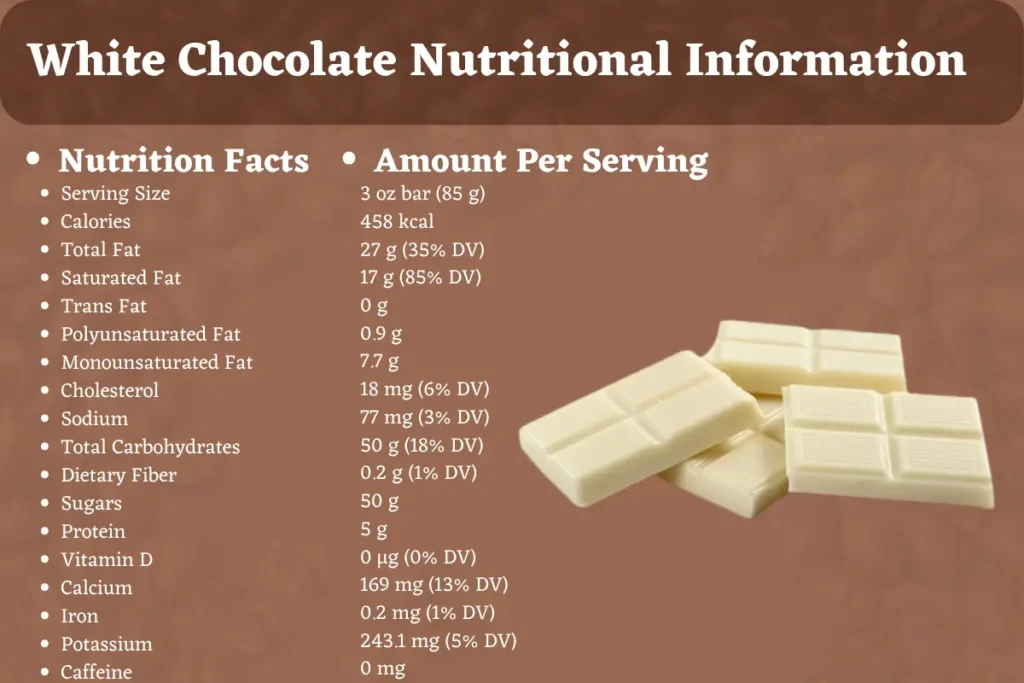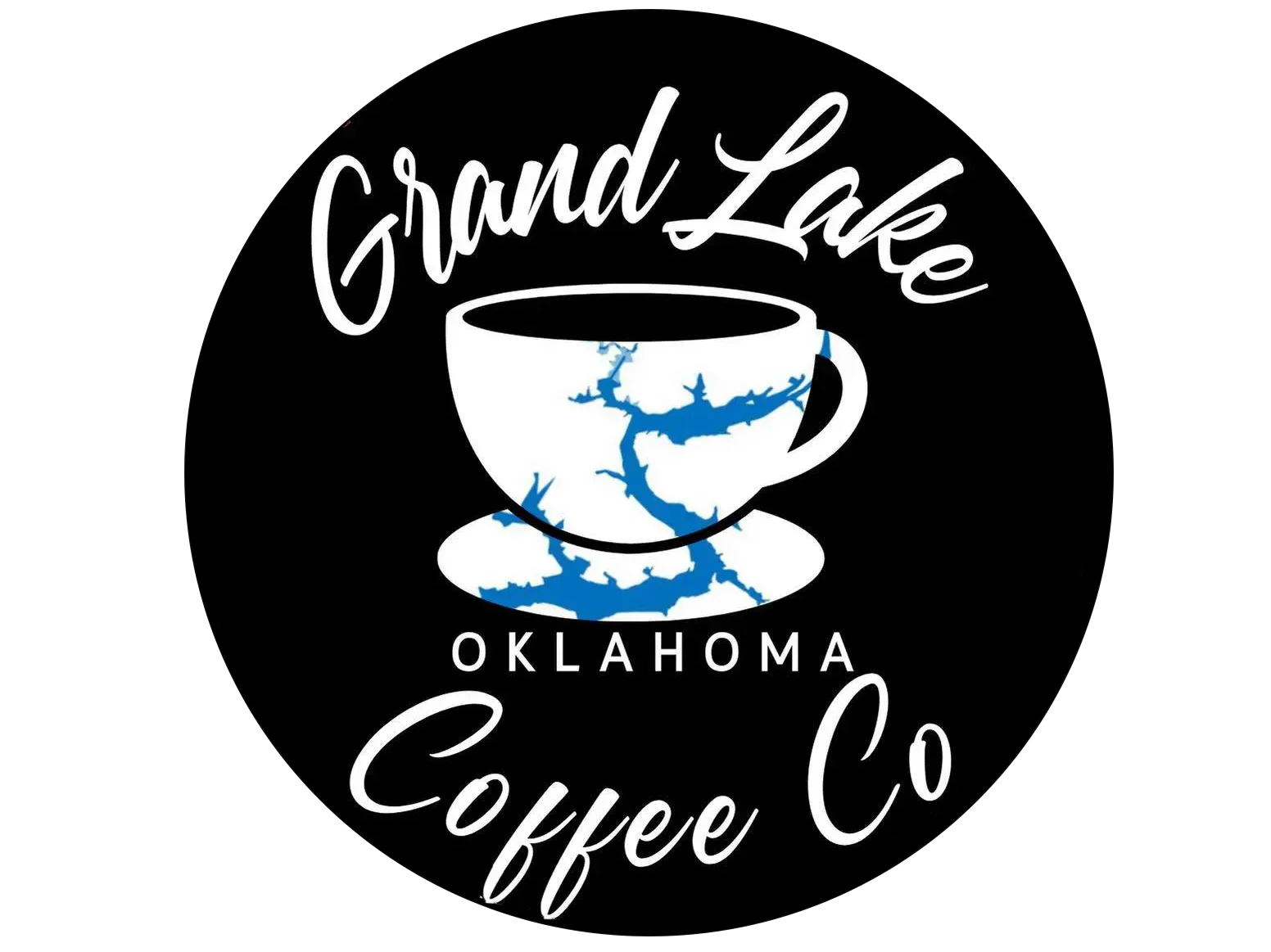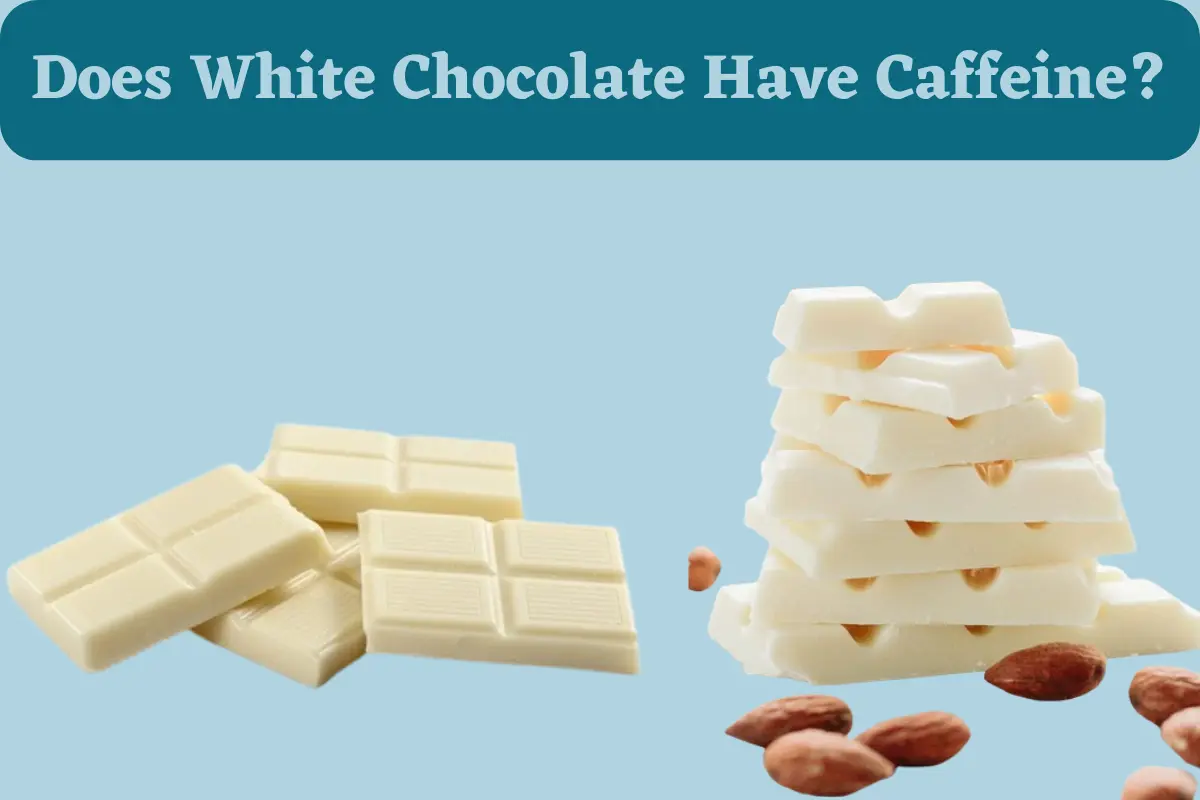Within the realm of chocolate, white chocolate stands out for its creamy sweetness and lack of the intense bitterness found in darker varieties. This distinction is due in part to the absence of cocoa solids, the very component that defines traditional chocolate. But beyond its taste profile, a question lingers for some: Does White Chocolate Have Caffeine?
Consuming chocolate later in the day can be a concern for those sensitive to caffeine, so understanding the presence (or absence) of this stimulant in white chocolate is key.
Importance of Knowing About White Chocolate
White chocolate, distinct in its composition and flavor, offers a unique option for chocolate lovers around the world. It’s especially appreciated for its creamy texture and sweet, rich taste, setting it apart from its milk and dark counterparts.
The global consumption of white chocolate spans various cultures and preferences, underscoring its versatility in the culinary world. It can be found in an array of desserts, beverages, and confections, highlighting its popularity and widespread appeal.
Given the affinity it enjoys, knowing the caffeine content in white chocolate assists individuals in making dietary choices that are in line with their health goals, dietary restrictions, or personal preferences.
Does White Chocolate Have Caffeine?
No, white chocolate is caffeine-free because it does not contain cocoa solids, which are the source of caffeine in chocolate.
Unlike dark and milk chocolate, white chocolate is made from cocoa butter, milk solids, sugar, and vanilla, giving it a sweet and creamy taste without the stimulating effects of caffeine.
This makes white chocolate an excellent choice for individuals sensitive to caffeine, those trying to avoid it, or anyone looking for a sweet treat without the potential stimulating effects of caffeine.
Its composition makes white chocolate a popular choice not only for direct consumption but also in various culinary applications, including baking, cooking, and as an ingredient in desserts and sweets.
However, despite its benefits for those avoiding caffeine, it’s important to note that white chocolate is still high in sugar and fat, and like all treats, it should be consumed in moderation. Also, while most white chocolate products are not suitable for vegans due to the presence of milk solids, there are dairy-free and vegan-friendly options available on the market.
White Chocolate Variants and their Caffeine Content
Beyond its basic form, white chocolate offers a delightful and versatile base for a vast array of sweet creations. Its creamy texture and mild sweetness make it a favorite canvas for bakers and confectioners to express their creativity. Here’s a peek into the world of white chocolate variants:
Classic White Chocolate
This variety, with its creamy, sweet flavor, is made from cocoa butter, milk solids, and sugar. The U.S. requires at least 20% cocoa butter and 14% milk solids. It contains no significant amount of caffeine, effectively making it caffeine-free.
High-Quality White Chocolate
Featuring a higher percentage of cocoa butter (30-45%) and premium ingredients like vanilla beans, this type offers a richer flavor and creamier texture. Like classic white chocolate, it does not contain caffeine.
Caramelized White Chocolate (Blond Chocolate)
Developed by slow-heating white chocolate to caramelize the sugars, this variety has a toasted, caramel-like flavor. It remains free of caffeine, given its white chocolate base.
Vegan White Chocolate
Utilizes plant-based milk powders and fats instead of dairy. Since it follows the cocoa butter-based formula of traditional white chocolate, it also lacks caffeine.
Ruby White Chocolate
Made from unique ruby cocoa beans, this pink-hued chocolate offers a fruity, slightly tart flavor. Introduced by Barry Callebaut in 2017, ruby white chocolate is similar to traditional white chocolate in its negligible caffeine content.
White Baking Chips
Designed for baking, these chips contain hydrogenated oils in addition to or instead of cocoa butter, allowing them to maintain shape under heat. They do not contribute any caffeine to dishes.
Matcha White Chocolate
Combines the creamy sweetness of white chocolate with the distinct flavor of matcha green tea powder. While white chocolate itself is caffeine-free, the addition of matcha introduces caffeine to this variant. The exact amount depends on the proportion of matcha used.
White Chocolate Ganache
A mix of white chocolate and cream, used as a decadent filling or frosting. Its caffeine content is negligible unless flavored with ingredients that contain caffeine.
White Chocolate Bark
A festive treat topped with nuts, dried fruits, or candies. Since the base is white chocolate, it’s virtually caffeine-free unless additional ingredients that contain caffeine are mixed in.
List of Ingredients in White Chocolate
White chocolate typically contains a few key ingredients that contribute to its distinctive flavor and texture. The main components of white chocolate are:
- Cocoa Butter: The fat that is removed from cocoa beans in order to make chocolate is known as cocoa butter. The primary ingredient of white chocolate is cocoa butter, which gives it a rich, creamy texture without the need for cocoa solids.
- Milk Solids: Milk solids, also known as milk powder or milk solids-not-fat, are derived from dairy milk. They add to white chocolate’s flavor and creamy, somewhat sweet texture.
- Sugar: Sugar is added to white chocolate to enhance its sweetness and balance the natural bitterness of cocoa butter. Different kinds of sugar, including powdered or granulated sugar, may be used in a recipe.
- Vanilla: Vanilla extract or vanilla flavoring is often incorporated into white chocolate to impart a subtle aromatic note and enhance its overall flavor profile.
White Chocolate Nutritional Information:

White chocolate, known for its creamy sweetness, carries a significant nutritional profile. A standard 3-ounce bar contains a substantial 458 calories. It also delivers a high amount of fat, totaling 27 grams, with a whopping 17 grams of that being saturated fat. As expected, white chocolate is extremely high in sugar, with a single bar containing 50 grams.
On the positive side, it provides a small amount of protein (5 grams) and a decent source of calcium, offering 169 milligrams. Iron and potassium are also present but in minimal amounts. Importantly, pure white chocolate is naturally caffeine-free.
| Nutrition Facts | Amount Per Serving |
| Serving Size | 3 oz bar (85 g) |
| Calories | 458 kcal |
| Total Fat | 27 g (35% DV) |
| Saturated Fat | 17 g (85% DV) |
| Trans Fat | 0 g |
| Polyunsaturated Fat | 0.9 g |
| Monounsaturated Fat | 7.7 g |
| Cholesterol | 18 mg (6% DV) |
| Sodium | 77 mg (3% DV) |
| Total Carbohydrates | 50 g (18% DV) |
| Dietary Fiber | 0.2 g (1% DV) |
| Sugars | 50 g |
| Protein | 5 g |
| Vitamin D | 0 µg (0% DV) |
| Calcium | 169 mg (13% DV) |
| Iron | 0.2 mg (1% DV) |
| Potassium | 243.1 mg (5% DV) |
| Caffeine | 0 mg |
Alternatives to White Chocolate and its Caffeine Content
Here are some common, delicious alternatives to white chocolate and how they stack up in terms of caffeine content:
Milk Chocolate
The classic go-to for those who want a bar of sweeter chocolate without the intensity of dark chocolate. Milk chocolate does contain cocoa solids, so it has a small amount of caffeine. A standard 1.55-ounce bar typically contains about 9 milligrams of caffeine.
Carob
Carob powder comes from the pods of the carob tree and offers a naturally sweet, slightly nutty flavor reminiscent of chocolate. Unlike chocolate, carob is caffeine-free and theobromine-free, perfect for those with sensitivities or looking to avoid stimulants altogether.
White Compound Chocolate/ Candy Melts
These products are made with vegetable oils, sugar, and milk products instead of cocoa butter. They mimic the smooth melt and mildness of white chocolate but offer no chocolate flavor whatsoever. They are completely caffeine-free.
Yogurt Coating
Yogurt coating is a mixture of yogurt powder, sugar, and oil that can be used as a white chocolate alternative in some applications. It does not contain caffeine, but it also does not have the same flavor profile as white chocolate.
| Product | Caffeine Content |
| Milk Chocolate | 9 mg per 1.55-ounce bar |
| Carob | Caffeine-free |
| White Compound Chocolate / Candy Melts | Caffeine-free |
| Yogurt Coating | Caffeine-free |
Read Also:
Conclusion
Does White Chocolate Have Caffeine? No, White chocolate does not contain caffeine, as it is made primarily from cocoa butter, milk solids, and sugar, without the inclusion of cocoa solids that are found in milk and dark chocolate.
For those seeking the energizing effects of caffeine or the antioxidant properties of cocoa, it is best to opt for dark chocolate varieties with a higher percentage of cocoa solids. As always, moderation is key when consuming any type of chocolate, as it is still a calorie-dense food that should be enjoyed as part of a diverse and nutritious diet.
Frequently Asked Questions:
Q1: What is 100% white chocolate?
100% white chocolate refers to a product made entirely from cocoa butter, without the inclusion of cocoa solids. In regions like the UK, white chocolate must contain a minimum of 20% cocoa butter to be considered chocolate. This high cocoa butter content is essential for achieving white chocolate’s creamy taste and texture.
Q2: Is white chocolate classed as chocolate?
Yes, white chocolate is classified as chocolate in many jurisdictions, including the UK and US, based on specific criteria such as containing a minimum of 20% cocoa butter. It differs from milk and dark chocolate by not containing cocoa solids, which gives it a unique flavor and texture profile.
Q3: Is white chocolate suitable for those with caffeine sensitivity?
White chocolate is suitable for individuals with caffeine sensitivity because it contains negligible amounts of caffeine. This is due to the absence of cocoa solids in white chocolate; it’s the cocoa solids in dark and milk chocolate that contain caffeine.
Q4: Is the white chocolate healthy?
While white chocolate contains beneficial components such as antioxidants from cocoa butter, it is also high in sugars and fats. Its health benefits should be considered within the context of a balanced diet, and it should be consumed in moderation.
Q5: Is white chocolate a stimulant?
Due to a lack of caffeine content, white chocolate is less likely to have a stimulating effect compared to milk or dark chocolate. This makes it a preferable option for those sensitive to caffeine or seeking a less stimulating chocolate option.

Rossi Glover, the passionate Owner of Grand Lake Coffee, infuses every cup with her love for coffee and dedication to quality. With an extensive background in the art and science of coffee, Rossi is not just a connoisseur but a storyteller, sharing the intricate tales behind each brew.

